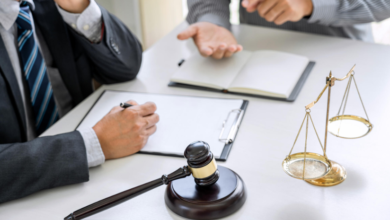How Employers Can Be Held Accountable For Professional Negligence

When you’re working hard and doing your best, you deserve a safe and fair workplace. But what happens when employers don’t follow their responsibilities? That’s when professional negligence comes into play. You need to know how employers can be held accountable. Understanding this helps protect your rights and ensure a safer work environment. Quinn Law Group fights for employee rights and makes sure employers are responsible for their actions. Sometimes, employers may ignore important safety rules or overlook training. This can lead to serious harm or injury. Knowing how to hold them accountable prevents future negligence and safeguards you and your coworkers. Remember, awareness of your rights and ways to enforce them is key. Whether it’s reporting issues or seeking legal advice, taking action is crucial. By doing so, you’re not just protecting yourself, but also setting a standard for fairness and safety at work.
Recognizing Professional Negligence
Understanding negligence begins with recognizing its signs. Employers show negligence when they fail to provide a secure workplace. This includes ignoring safety procedures, failing to maintain equipment, or not providing necessary training.
If you notice these issues, you can take action. Reporting problems to your supervisor is a first step. If that doesn’t help, you can contact government agencies that enforce workplace safety. The Occupational Safety and Health Administration (OSHA) offers guidance on how you can report unsafe conditions.
Legal Framework for Accountability
The legal system has rules to hold employers accountable. These rules encourage employers to maintain a safe environment. Laws like the Occupational Safety and Health Act help protect you from harm. You have the right to report unsafe conditions without fear of retaliation.
When employers break these laws, they face penalties. These can include fines or even the closure of their business. Legal action is a serious step, but it is necessary when employers consistently ignore their duties.
Steps to Enforce Accountability
- Identify unsafe conditions or practices.
- Report issues to a supervisor or safety officer.
- If unresolved, contact OSHA or another relevant body.
- Document every report or communication about the issue.
- Consult with legal experts if conditions persist.
See also: Criminal Lawyer Brampton Ontario: Why Experience Matters
Comparing Employer Responsibilities
Employers across different sectors have various responsibilities. Here’s a comparison table highlighting common duties:
| Sector | Common Responsibilities |
|---|---|
| Manufacturing | Maintain equipment, ensure safe material handling, provide safety gear |
| Healthcare | Follow hygiene practices, ensure patient and staff safety, maintain confidentiality |
| Construction | Adhere to building codes, provide protective equipment, ensure site safety |
Impact of Negligence on Employees
Professional negligence can have serious effects. Physical injuries are just one part. Emotional stress and reduced morale can also result. This affects not just individual employees but entire teams.
Holding employers accountable improves workplace morale. It also increases productivity. When employers follow rules, everyone benefits.
Resources for Support
If you face negligence, plenty of resources are available. Additionally, the U.S. Department of Labor provides tools and resources to help you know your rights and report issues.
Taking the step to seek help is crucial. It ensures you work in a safe, respectful environment. You have the power to make a change. Remember, enforcing accountability is not just about rights. It’s about creating a culture of safety and respect for everyone.



